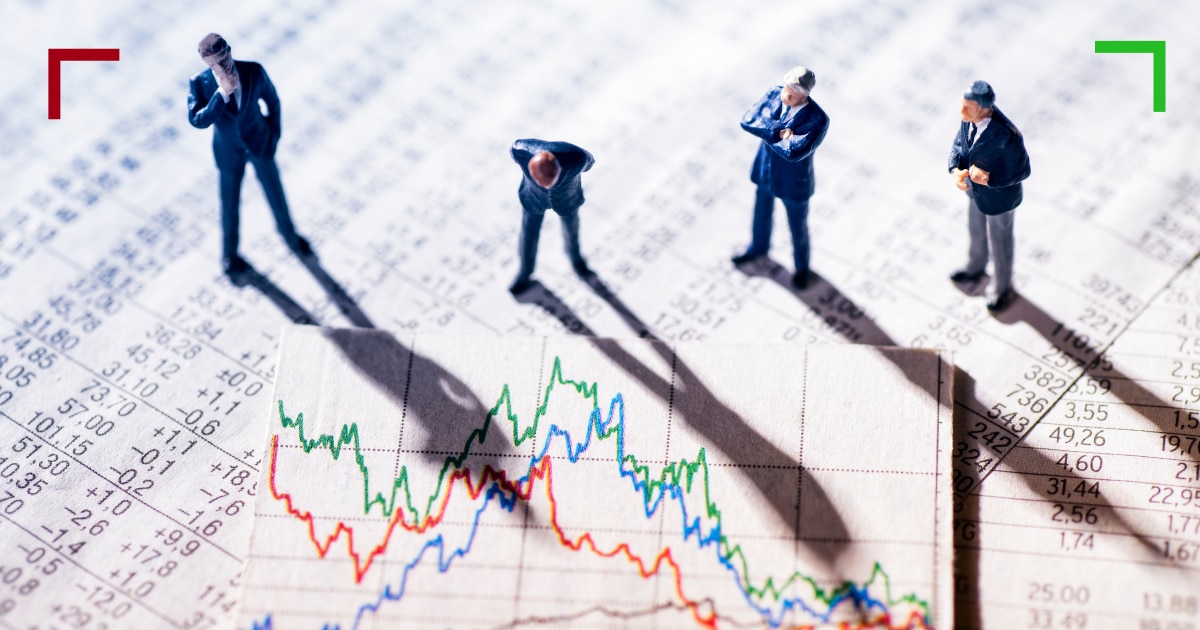*OspreyFX would like to state that traders should research extensively before following any information given hereby. Please read our Risk Disclosure for more information.
Financial Markets Volatility: Friend or Foe?
- What is volatility?
- What can cause high volatility levels?
- The opportunities it provides to traders and investors.
Every trader that aims to trade successfully needs to understand what volatility is. He also needs to know how it affects the markets. Volatility is a statistical measure of the dispersion of returns for a certain asset or market index.
Volatility is characterized by big price swings in either direction. For example, when the cryptocurrency market rises and falls more than 4% in a consistent timeframe, it results in a volatile market. Furthermore, volatile assets such as cryptocurrencies are riskier than less volatile assets since the price is less predictable.
It is crucial for every new trader to understand how to identify a volatile market so as to trade it efficiently
Subscribe to our newsletter to receive our weekly updates + more straight to your inbox!
Common Reasons That Could Trigger High Volatility Levels
Volatility in the markets can be triggered by a varied list of reasons. It is often the result of imbalanced trade orders such as buy orders and no sell ones.
There are other common reasons that could lead to a volatile market:
a) Events of political nature: Governments are a key factor that could affect the markets’ performance. Taxes, tariffs, federal spending, and trade agreements all play an important role in the markets. Political speeches can also raise volatility levels.
b) Economic crises: Every financial market is sensitive to major events that affect the economy. Moreover, prices react negatively as the bigger the crisis the bigger its influence on the market’s performance.
c) Volatility worldwide: A modern economy is globally connected. All world might have an impact on the volatility levels of a certain asset. Revolutions or wars can be reflected on the financial markets as investments between countries and corporations may no longer be possible.
d) Health crises: At the time of writing, Coronavirus is still keeping the world on lockdown. Furthermore, markets reached their highest level of volatility since the Financial Crisis due to the virus. Remember that people fear the unknown. The uncertainty that Covid-19 is generating makes it easier for investors to panic-sell their assets leading to high volatility levels.
These are some of the most common reasons that could trigger high levels of volatility across all financial markets. However, investors shouldn’t see volatility as something completely negative. They should instead learn about the opportunities it creates.

Opportunities That Volatility Can Bring to Investors
Increased levels of volatility open a window for new strategies. Highly volatile markets can benefit investors in the long-term. It creates an opportunity for investors to diversify their portfolios and avoid growing risks.
Opportunities are also a result of preparation. That is why investors should always perform the necessary research and stay updated with recent events. By thinking from a long-term perspective, high levels of volatility widen the range needed to implement different investment strategies. Additionally, if an investor anticipates that the price of an asset will be in a certain range in the future, then he or she can choose to open a position on any extreme of the range. This ends with the profit potential being increased.
Investors and traders must understand that volatility creates many risks in the financial markets. However, the opportunities it creates for long-term investments are bigger than the risks. Traders must understand the level of preparation and knowledge that they need to have to become profitable.